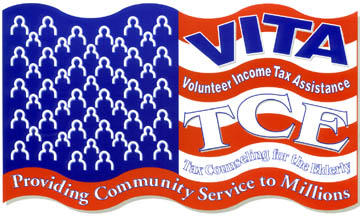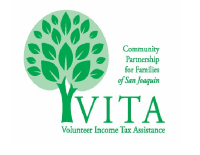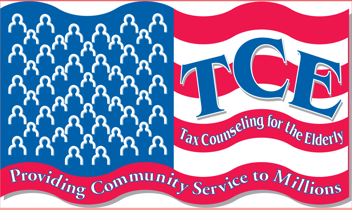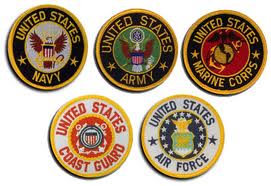Search Results
A Taxing Conversation (Part 3): Free Tax Preparation Assistance
~Benjamin Franklin
As we saw last week, a sub-set of what is certain includes scams and trickery related to taxes. But even when everyone is playing by the rules, the tax system can still be complicated. The current U.S. Tax Code is 71,684 pages in length! This is not what one would call light reading.
Last year, I created a primer to help you get organized for tax season. The series included:
Organizing Your Tax Paperwork–Part 1:
The Taxman, the Eggman, the Walrus and You
This post broke down the various types of information returns, including W-2s, 1098s, and the myriad types of 1099s.
Organizing Your Tax Paperwork–Part 2:
Health, Home, Heart and Head
The second installment detailed the different types of documentation you should gather to complete your income tax return. Items range from receipts for medical care expenses to proof of home and moving costs, from childcare expense documentation and charitable donations to work- and education-related expenses receipts.
Organizing Your Tax Paperwork–Part 3:
Get Your Business (Receipts) Off The Ground
The conclusion of the series offered tips for organizing small business records to take advantage of all possible credits and deductions.
Anyone filing a tax return more complicated than the 1040-EZ would benefit from working with a certified public accountant or tax attorney, at least once, to ensure no opportunities are lost and that all bases are covered. However, not everyone can afford professional tax services. Luckily, there are alternative solutions for getting your tax questions answered and finding assistance in preparing your tax returns.
Consider the following no-cost options:


Volunteer Income Tax Assistance (VITA) — This IRS program is for those individuals or households with annual incomes of $49,000 or less. Volunteers are often current or former CPAs and enrolled agents, as well as other professionals with financial backgrounds. These trained community volunteers should be able to help taxpayers deal with issues regarding completion of forms, applicable deductions and special credits, like the Earned Income Tax Credit and Credit for the Elderly or the Disabled.
At most VITA sites, the volunteers will not only assist in preparing tax returns, but will also be able to provide free electronic filing (e-filing). The IRS notes that taxpayers who take advantage of the e-file program and who are due refunds can receive those refunds significantly faster than those who mail paper returns, particularly when tax refunds are directly deposited into one’s bank account.
This is far more advantageous than the common refund anticipation loans (RALs) many consumers get through the chain tax services they use, as e-filing through a VITA (or other IRS-approved non-profit service) location allows taxpayers to keep 100% of the refunds due to them.
VITA sites are generally located in conveniently-accessed community centers, public libraries, schools, shopping malls and senior centers. Although the IRS does have a link to a list of many available VITA locations in the fifty states, the District of Columbia and Puerto Rico, the list is not all-encompassing. To find a VITA location near you, call (toll-free) 1-800-906-9887.

Tax Counseling for the Elderly (TCE) — This IRS program is designed for taxpayers aged 60 and above. TCE enables senior citizens to get free tax counseling and tax preparation services (including e-filing) from trained volunteers. Volunteers from where, you might ask?
Section 163 of the Revenue Act of 1978 (Public Law No. 95-600, 92 Stat. 2810, for those of you in training for Jeopardy) authorizes the IRS to form agreements with, and to provide grants to, private or (non-governmental) public non-profit agencies or organizations so that volunteer members of these groups can be trained to provide elderly citizens with assistance in preparing federal income tax returns. Although volunteers are not paid, grant funds can be used to reimburse them for out-of-pocket expenses like transportation, meals, and other expenses incurred while providing tax counseling.
To find a TCE service provider in your area, call (toll-free) 1-800-829-1040 or ask the staff at your nearest public library.
The best known TCE partner organization is AARP’s Tax-Aide.

AARP’s Tax-Aide — In concert with the IRS-sponsored TCE Program, the American Association of Retired Persons (AARP) offers the Tax-Aide counseling program at more than 7,000 venues nationwide during the tax filing season, from late January through mid-April. The tax counseling is designed for persons aged 60 or older with low or middle incomes. Seniors with higher incomes and/or particularly complex investment portfolios should generally seek professional assistance.
To locate the nearest AARP Tax-Aide volunteer counseling site, use the AARP’s online Tax-Aide Locator and search by address (only a zip code is required and no personal information is saved) or county, and select the mileage radius from your address. You can also indicate whether you intend to e-file, although this may reduce the number of Tax-Aide counseling locations available in your search radius.
The Tax-Aide Locator will provide you with results including the venue’s name, complete address, phone number, e-filing availability status, handicapped accessibility status, service schedule and notes regarding whether appointments are necessary or if walk-ins are welcome. The Locator also provides an indication of how far the service locations are from the address you indicate and pinpoints the locations on a Google-powered adjustable map. I was able to find six locations within the 20-mile radius I set, including one that was merely 1.94 miles from Paper Doll headquarters. (If I’m still here when I’m 60, this will be extremely convenient!)
Alternatively, you can call (toll-free) 1-888-227-7669 to find a Tax-Aide location.
In order to have your tax return prepared at a VITA, TCE or Tax-Aide venue, you’ll need to bring the following:
- Proof of identification — While photo ID is not generally required, you may wish to call ahead to the specific venue to verify the requirement if you don’t have a picture ID.
- Social Security Cards for yourself, your spouse and any dependents you intend to claim on this year’s tax return. (If you or any of your dependents are not eligible for a Social Security number, you’ll have to obtain and bring an Individual Taxpayer Identification Number (ITIN) assignment letter for the person(s) in question or Proof of Foreign Status if applying for an ITIN.)
- Proof of birth dates for you, your spouse and any dependents (particularly to prove you are eligible for TCE assistance if you, like PaperMommy, look far younger than your numerical age)
- Wage and earning statement(s) — including any W-2s or 1099-Rs from employers, 1099-MISCs from anyone for whom you’ve worked as an independent contractor, or W-2Gs from gambling establishments from whom you’ve won those big, big bucks!
- Interest and dividend statements from banks, brokerage houses, etc., including 1099s of all varieties and 1098s indicating mortgage interest paid, as well as 1098-Es for educational interest and 1098-Ts for tuition paid
- A copy of last year’s federal returns (and any state returns, if applicable)
- Proof of bank routing numbers and account numbers to enable your refund be delivered via direct deposit — a blank check or deposit slip from an active account will suffice
- Total paid for daycare providers and daycare providers’ tax identifying number, which will either be a Social Security number for an individual provider or an Employer Identification Number for any daycare center
Note: To file taxes electronically on a “Married, Filing Jointly” status tax return, both spouses must be present to sign the required forms. However, if you intend to take the tax return away with you and file by mail (in lieu of e-filing), only one spouse needs to be present.

Armed Forces Tax Council (AFTC) — The VITA program is also associated with the tax program coordinators for all U.S. military personnel in the Army, Air Force, Navy, Marine Corps and Coast Guard. The AFTC administers and oversees the operations of military tax assistance programs worldwide, and is the main source for free assistance and outreach to military personnel and their families.
VITA/AFTC volunteers are not only trained to provide general tax advice and assistance with tax preparation; they’ve received special training to counsel military personnel and their families on the particular tax issues that face military families, including combat zone tax benefits and the impact of the Earned Income Tax Credit (EITC).
Whether seeking AFTC assistance while in the U.S. or abroad, bring all of the paperwork indicated above for VITA/TCE/Tax-Aide visits. In addition, for spouses selecting the “Married, Filing Jointly” status who wish to e-file, both spouses should normally be present to sign the required forms. If military assignment prevents one spouse from being present, be sure to bring a valid Power of Attorney, which will allow for tax preparation and filing.
Note: There is a special exception to using a Power of Attorney for spouses in combat zones. The filing spouse may e-file a joint return with only a written statement verifying that the military spouse is assigned to a combat zone and is unable to sign.
Members of the military serving in “Designated Combat Zones” or “Qualified Hazardous Duty” areas get an automatic 180-day extension for filing returns and paying taxes. Those on an assigned tour of duty outside of the United States or Puerto Rico qualify for an automatic extension until June 15th. (When you do file, attach a statement to the return, indicating you met the requirement.) An additional extension to August 15th is available by using IRS Form 4868.
Military personnel and family members may wish to avail themselves of the information provided in the IRS’s Armed Forces Tax Guide (PDF) publication, also available online. You can also call the IRS at 800-829-3676 to request a free paper copy.




Follow Me